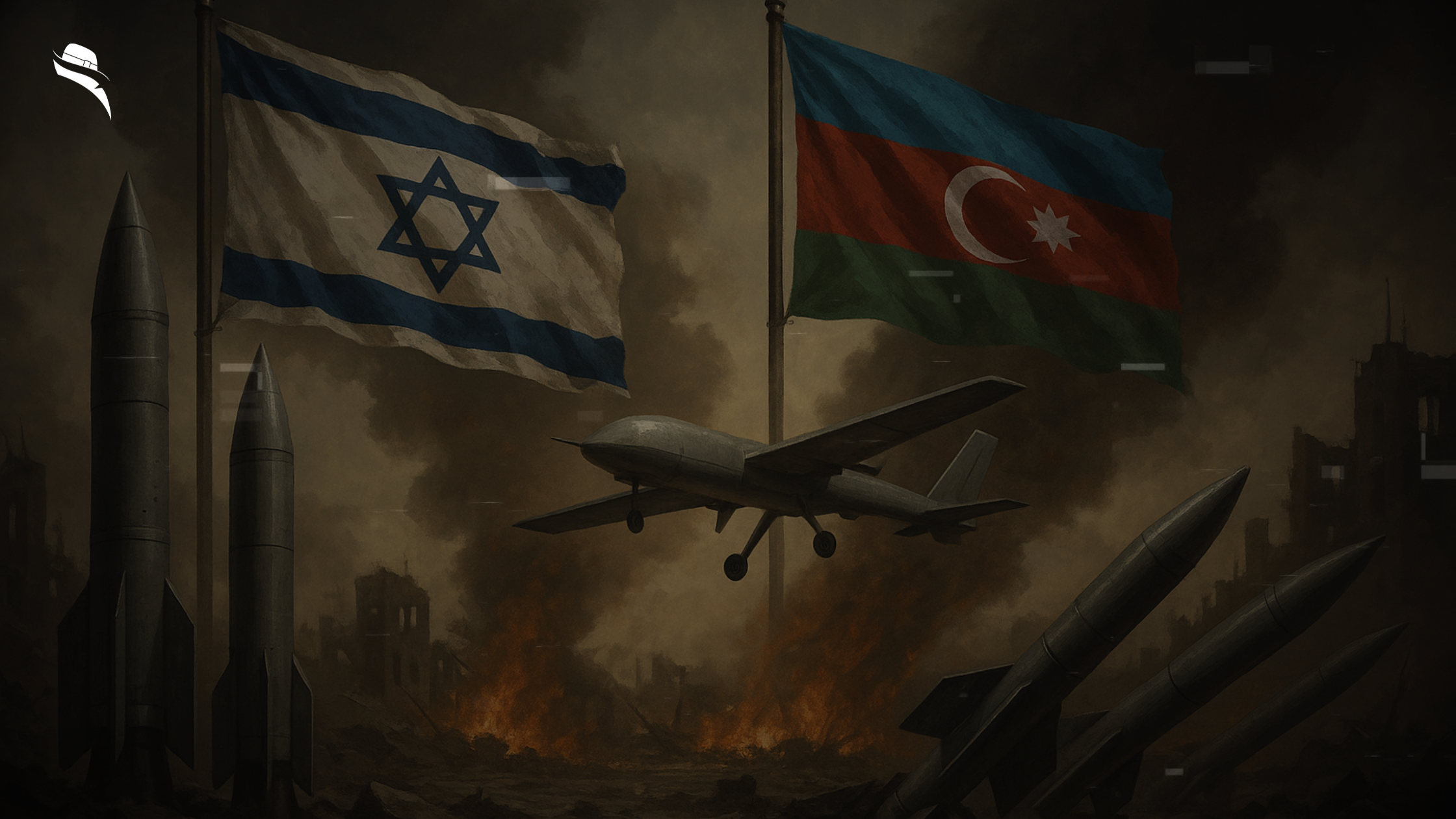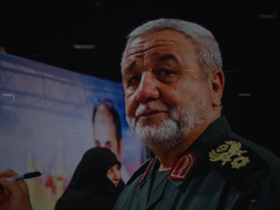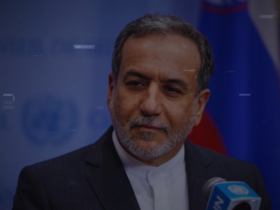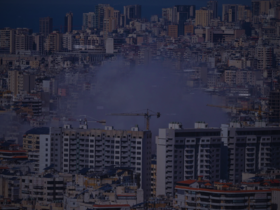Israel sold weapons to Azerbaijan against Armenians at an unprecedented scale, supplying nearly 70% of Azerbaijan’s arsenal between 2016 and 2020. This military support proved decisive in the recent Nagorno-Karabakh conflicts, where Israeli-made weapons gave Azerbaijan a significant edge against Armenian forces.
According to the Stockholm International Peace Research Institute, more than 60% of Azerbaijani weapons imports came from Israel between 2017 and 2020. The Israel-Azerbaijan relations grew stronger through these arms deals, with evidence showing at least 11 flights departing from Ovda airbase in southern Israel bound for Baku between March and September 2023. These weapons transfers raise questions about why Israel supports Azerbaijan so steadfastly despite international concerns.
The consequences of these arms sales were devastating. Azerbaijan’s September offensive, using heavy artillery and drones largely supplied by Israel, forced Armenian separatist authorities to surrender after just 24 hours. The fighting killed over 200 Armenians and 200 Azerbaijani troops, while prompting more than 100,000 people—representing over 80% of the enclave’s ethnic Armenian residents—to flee. This article examines how these weapons transfers occurred, which systems were provided, and the geopolitical motivations behind Israel’s decision to sell weapons to Azerbaijan despite the humanitarian impact.
How Israel sold weapons to Azerbaijan
The secretive arms pipeline between Israel and Azerbaijan operates through a little-known military airbase in southern Israel and a cargo airline with ties to the Azerbaijani government. This system has facilitated billions of dollars in arms transfers, significantly altering the balance of power in the South Caucasus region.
Silk Way Airlines and Ovda Airbase connection
The cornerstone of Israel’s weapons exports to Azerbaijan is a unique relationship between Azerbaijan’s Silk Way Airlines and Israel’s Ovda airbase. Located in southern Israel, Ovda is the only airfield in the country authorized for the export of explosives. Since 2016, at least 92 cargo flights operated by Silk Way Airlines have landed at this military facility.
This arrangement began formally in October 2013 when the head of Israel’s Civil Aviation Authority signed an exemption permitting Silk Way planes to transport “classified as dangerous materials banned from flying” from Ovda directly to a military airfield near Baku. Silk Way Airlines, one of the largest cargo carriers in Asia, serves as a subcontractor for various defense ministries worldwide and operates three weekly flights between Baku and Ben-Gurion International Airport.
Flight tracking data before major offensives
Flight tracking data reveals a clear pattern connecting these weapons shipments to subsequent military actions. In early September 2023, as diplomats attempted to prevent escalation, Azerbaijani cargo planes began arriving at Ovda airbase. The Associated Press identified at least six flights by Silk Way Airlines landing at Ovda between September 1-17, 2023. Notably, Azerbaijan launched its offensive against Nagorno-Karabakh just two days later.
This pattern wasn’t new. An investigation by Haaretz documented spikes in flights during mid-2016, late 2020, and late 2021 – all coinciding with periods of intensified fighting in Nagorno-Karabakh. During the 2020 war, flights were occurring “every other day” according to Armenia’s ambassador to Israel. These military shipments increased substantially during each of Azerbaijan’s attacks on Armenia/Artsakh in 2016, 2020, 2021, and 2022.
Why did these shipments raise global concern?
The scale and impact of these weapons transfers have generated international criticism. In 2016, during Prime Minister Benjamin Netanyahu’s visit to Baku, President Aliyev announced that contracts worth approximately $5 billion for “defensive equipment” had been signed between the two countries. These sales occurred precisely because European and American restrictions created an opportunity for Israel to earn billions in weapons sales to Azerbaijan.
Furthermore, Israel’s willingness to support Azerbaijan against Armenian forces has sparked ethical debates within Israel itself. Of the top 10 global arms manufacturers, only Israel and Russia lack legal restrictions on weapons exports based on human rights concerns. Critics point out the irony that “if anyone can identify with Nagorno-Karabakh Armenians’ continuing fear of ethnic cleansing, it is the Jewish people,” as noted by Avidan Freedman, founder of an Israeli advocacy group working to stop arms sales to human rights violators.
The Armenian ambassador to Israel has repeatedly expressed concern, stating, “Israeli weapons have been firing at our people”. Nevertheless, even after the Gaza conflict erupted in October 2023, when Israel itself began receiving significant military aid from the United States, the weapons flights to Azerbaijan continued.
Key Israeli weapons used in the conflict
Israeli weaponry proved decisive in reshaping the Armenia-Azerbaijan conflict, with sophisticated systems that gave Azerbaijan unprecedented battlefield advantages. These weapons transformed conventional warfare tactics and altered the balance of power in the region.
Harop drones and loitering munitions
The Harop loitering munition, known for its piercing noise as it descends on targets, emerged as Azerbaijan’s signature weapon against Armenian forces. These “suicide drones” devastated Armenian defenses through an ingenious tactic – Azerbaijan converted vintage Soviet-built Antonov An-2 biplanes into remote-controlled decoys that activated Armenian S-300 radars, allowing Harop drones to pinpoint and destroy these high-value assets with remarkable precision. This strategy resulted in the destruction of at least six expensive S-300 systems.
Beyond the Harop, Azerbaijan developed an extensive drone arsenal, including other Israeli loitering munitions such as the Orbiter and SkyStriker UAVs. Additionally, Azerbaijan acquired various reconnaissance drones from Israel, including the Elbit Hermes 450, IAI Heron, IAI Searcher, Aeronautics Defense Orbiter, and Aerostar Tactical UAS.
Barak-8 air defense systems
The Barak-8, jointly developed by Israel Aerospace Industries and India’s Defense Research & Development Organization, provided Azerbaijan crucial protection against Armenian missiles. In a pivotal moment during the 2020 conflict, a Barak-8 battery reportedly intercepted an Iskander ballistic missile launched by Armenia toward Baku. Azerbaijan recently invested $1.2 billion to acquire additional Barak MX systems from Israel.
This advanced air defense system includes interceptors, launchers, command and control systems, and sophisticated radar with a protection range of up to 150 kilometers. The system can intercept combat aircraft, helicopters, UAVs, cruise missiles, and ground-to-air missiles.
LORA missiles and long-range strikes
Israel’s LORA (Long Range Artillery) ballistic missile system, with a range of 280-430 kilometers, provided Azerbaijan with strategic strike capabilities. These missiles, carried in quadruple packs by ships or 6×6 vehicles, can deploy high explosive warheads or submunitions with a pinpoint accuracy of approximately 10 meters CEP.
Azerbaijan first purchased LORA missiles from Israel in 2017 and deployed them within striking distance of Armenia’s capital. During the 2020 war, Azerbaijan used LORA missiles to target a bridge connecting Armenia to Nagorno-Karabakh, attempting to limit reinforcement capabilities.
Tavor rifles and special forces gear
At the infantry level, Israel supplied Azerbaijan with Tavor assault rifles, primarily the X95 variant. These bullpup-designed rifles, chambered in 5.56×45mm NATO, offer reliability under adverse battlefield conditions. Various Azerbaijani special forces units were observed using these weapons during operations.
The comprehensive nature of Israeli military support—from individual rifles to sophisticated missile systems—enabled Azerbaijan to overwhelm Armenian defenses across multiple domains simultaneously, ultimately changing the trajectory of a decades-old conflict.
The devastating effectiveness of Israeli technology in this conflict has not only redrawn military boundaries but also ethical ones. Supplying weapons used in operations that triggered mass civilian displacement places Israel in the uncomfortable position of arming one-sided warfare, despite its own historic experience with persecution.
Why does Israel support Azerbaijan militarily?
Behind Israel’s extensive weapons exports to Azerbaijan lies a complex web of strategic interests. The partnership, which blossomed in the early 1990s, serves both nations through a carefully cultivated relationship built on mutual benefits rather than mere transactional arms deals.
Oil trade and energy security
Azerbaijan has become the backbone of Israel’s energy security, currently supplying 40-65% of Israel’s oil. This critical energy partnership dates back to the 1990s, when Israel sought stable energy sources independent of Arab nations. In 2021, it was estimated that Israel imported 65 percent of its oil from Azerbaijan.
The relationship has proven remarkably resilient. Even during the Gaza war following October 7, 2023, Azerbaijan increased its energy exports to Israel by 55%, demonstrating unwavering support amid international pressure. Azerbaijan’s SOCAR recently deepened this energy partnership by acquiring a 10% stake in Israel’s Tamar gas field, which supplies approximately 70 percent of Israel’s electricity generation.
Shared stance against Iran
Both Israel and Azerbaijan view Iran as an existential threat, creating a powerful foundation for their alliance. The countries engage in extensive intelligence cooperation, with multiple reports indicating Israel maintains a substantial intelligence presence in Azerbaijan to monitor Iranian activities.
Indeed, in March 2012, Foreign Policy magazine reported that Israel had been “deeply embedded in Azerbaijan” for decades. The partnership grew particularly valuable after Azerbaijan’s 2020 victory in the Karabakh conflict, which extended its border with Iran by 100 kilometers, creating additional strategic advantages for intelligence operations.
Strategic regional influence
Azerbaijan represents Israel’s most important partner among Muslim-majority countries, offering diplomatic legitimacy that few other nations provide. The relationship extends beyond military cooperation, with Azerbaijan occasionally serving as a mediator between Israel and Turkey.
Following the fall of Bashar al-Assad’s regime in Syria, Azerbaijan’s role as an intermediary has grown increasingly valuable. Moreover, some Israeli lawmakers have advocated for Azerbaijan’s inclusion in the Abraham Accords framework, reflecting its status as a “key pillar of Israel’s regional security”.
This multifaceted relationship explains why Israel continues supporting Azerbaijan militarily despite international criticism. The nations have built what former Azerbaijani President Heydar Aliyev described as a partnership where “nine-tenths of it is below the surface”—a testament to its strategic depth beyond visible arms sales.
While geopolitical strategy and energy security explain much of this alliance, critics argue that Israel’s willingness to arm a regime accused of ethnic cleansing contradicts the moral values it claims to uphold globally. For a country founded on the promise of “Never Again,” enabling mass displacement elsewhere invites accusations of double standards.
Impact on the Armenia-Azerbaijan conflict
The military partnership between Israel and Azerbaijan fundamentally altered the course of the Nagorno-Karabakh conflict, creating unprecedented asymmetry between the warring parties and ultimately leading to Azerbaijan’s decisive victories in both 2020 and 2023.
Role of Israeli tech in 2020 and 2023 offensives
Israeli weapons proved decisive in Azerbaijan’s military campaigns against Armenian forces. In the 2020 six-week war, Israeli drones sliced through Armenian defenses, tipping the balance in Azerbaijan’s favor. Subsequently, Azerbaijan’s September 2023 blitz—utilizing heavy artillery, rocket launchers, and drones largely supplied by Israel—forced Armenian separatist authorities to surrender after just 24 hours. This overwhelming technological advantage enabled Azerbaijan to achieve in a single day what years of negotiations had failed to accomplish.
Israeli-supplied LORA missiles with 430km range gave Azerbaijan strategic depth, even striking targets deep within Armenia itself. Consequently, in the days preceding the September 2023 offensive, at least six flights operated by Azerbaijan’s Silk Way Airlines landed at Israel’s Ovda airport between September 1-17, ensuring Azerbaijan had sufficient weaponry for the impending attack.
Shift in battlefield dynamics
The introduction of Israeli weapons fundamentally transformed how the conflict was fought:
- Israeli long-range missiles compensated for Azerbaijan’s small air force
- Israeli Barak-8 surface-to-air missiles protected Azerbaijan’s airspace against Armenian missiles and drones
- Loitering munitions provided unprecedented precision strike capabilities against Armenian defensive positions
In essence, the asymmetric investments in weapons—both quantitative and qualitative—dramatically changed the military balance between the two states. This imbalance potentially lowered the threshold for Azerbaijan to choose force over diplomacy to recapture Nagorno-Karabakh, especially given the militarized rhetoric of the Azerbaijani leadership well before 2020.
Civilian displacement and ethnic cleansing claims
The human cost of these offensives was catastrophic. The 2023 fighting prompted over 100,000 people—more than 80% of the enclave’s ethnic Armenian residents—to flee in just two weeks. Armenian Prime Minister Nikol Pashinyan termed this exodus “a direct act of ethnic cleansing,” though Azerbaijan’s Foreign Ministry rejected this characterization.
To clarify the scale of suffering, the 2020 war killed at least 146 civilians, including children and elderly people. Thereafter, Amnesty International documented how Armenian and Azerbaijani forces used indiscriminate weapons in civilian areas, violating international humanitarian law. Under those circumstances, many Armenians, remembering both the recent war and the more distant history of genocide against their countrymen, were unwilling to rely on the mercy of Azerbaijani security services.
Backlash and ethical concerns
The weapons sales between Israel and Azerbaijan have prompted widespread condemnation both diplomatically and ethically. These transactions have strained relations with Armenia and raised questions about Israel’s arms export policies.
Armenian diplomatic protests
Armenia formally recalled its ambassador to Israel in October 2020 to protest Israeli weapons exports to Azerbaijan. Throughout subsequent diplomatic exchanges, Armenia’s ambassador Arman Akopian expressed alarm to Israeli politicians and lawmakers over continued weapons shipments. “For us, it is a major concern that Israeli weapons have been firing at our people,” Akopian told reporters, questioning why Israel couldn’t “express at least some concern about the fate of people being expelled from their homeland”. The Armenian foreign ministry explicitly condemned “Israel’s supply of ultra-modern weapons to Azerbaijan” as unacceptable.
Criticism from Israeli civil society
Even within Israel, the decision to support Azerbaijan against an ethnic minority has fueled internal debates about arms export policies. Avidan Freedman, founder of Israeli advocacy group Yanshoof, highlighted the irony: “If anyone can identify with Nagorno-Karabakh Armenians’ continuing fear of ethnic cleansing, it is the Jewish people”. His organization, which opposes arms sales to human rights violators, stated bluntly: “We’re not interested in becoming accomplices”. Israeli-Armenian community groups have also organized demonstrations against defense companies like Elbit Systems.
Lack of export restrictions on human rights grounds
Among the world’s top ten arms manufacturers, Israel stands alongside only Russia in lacking legal restrictions on weapons exports based on human rights concerns. This permissive regulatory environment allows defense contractors to pursue deals without the same ethical constraints faced by Western counterparts. Unlike many democratic nations, Israel has minimal legislation preventing arms manufacturers from selling weapons to military dictatorships.
Israel’s arms sales policy has sparked internal and external criticism not merely for the volume of weapons, but for the silence that often accompanies them. As Armenian civilians fled en masse, many human rights advocates asked a simple but piercing question: How can a nation shaped by trauma so easily overlook the suffering of others?
Final Thoughts
The ethical dimensions of Israel’s weapons sales to Azerbaijan reveal a stark contrast between realpolitik and moral considerations. Within Israel itself, these transactions have sparked significant debate about the country’s permissive arms export policies. Currently, of the top 10 arms manufacturers globally, only Israel and Russia lack legal restrictions on weapons exports based on human rights concerns.
This moral contradiction hasn’t gone unnoticed by Israeli civil society. As Avidan Freedman, founder of Israeli advocacy group Yanshoof, pointedly observed: “If anyone can identify with Nagorno-Karabakh Armenians’ continuing fear of ethnic cleansing, it is the Jewish people”. His organization, which opposes arms sales to human rights violators, emphatically stated: “We’re not interested in becoming accomplices”.
Beyond moral questions, both nations derive substantial benefits from their alliance. Azerbaijan and Israel have built a partnership based on common interests, facing common threats, and addressing core national interests. Throughout geopolitical crises, both countries have stood firm, protecting their strategic ties against third-party influence attempts.
Even amidst the 2025 Israel-Iran war, Azerbaijan carefully navigated a delicate diplomatic path while striving to preserve regional stability. At its core, the relationship challenges common assumptions about alliances, demonstrating that strategic partnerships aren’t necessarily built on shared culture or religion but on mutual interests and common adversaries.
Ultimately, the Israel-Azerbaijan arms relationship reveals an uncomfortable truth: even nations with painful histories of injustice are not immune to perpetuating harm in pursuit of power. For those who believe in a consistent global standard of justice, this episode serves as a reminder that moral leadership demands more than survival—it requires restraint, empathy, and accountability.
FAQs
1. Did Israel sell weapons to Azerbaijan during the Nagorno-Karabakh conflict?
Yes. Between 2016 and 2020, Israel supplied nearly 70% of Azerbaijan’s military imports. These weapons—including drones, missiles, and air defense systems—played a decisive role in Azerbaijan’s victories in the Nagorno-Karabakh wars, particularly in 2020 and 2023.
2. Why did Israel sell weapons to Azerbaijan despite human rights concerns?
Israel views Azerbaijan as a key strategic partner due to its energy exports, proximity to Iran, and intelligence cooperation. Unlike many Western countries, Israel lacks legal restrictions on arms sales based on human rights violations, allowing such deals despite growing international criticism.
3. What Israeli weapons were used by Azerbaijan against Armenia?
Azerbaijan used Israeli-made Harop “suicide drones,” LORA ballistic missiles, Barak-8 air defense systems, and Tavor rifles during its offensives. These systems enabled precise strikes on Armenian forces and infrastructure, including long-range attacks into Armenian territory.
4. How did Israeli weapons impact the Armenia-Azerbaijan conflict?
Israeli arms tipped the military balance in Azerbaijan’s favor, allowing for swift victories and massive territorial gains. The 2023 offensive led to the displacement of over 100,000 ethnic Armenians from Nagorno-Karabakh, sparking accusations of ethnic cleansing.
5. What is the connection between Israel and Silk Way Airlines?
Silk Way Airlines, an Azerbaijani cargo carrier, operates military flights from Israel’s Ovda airbase—the only Israeli facility authorized for weapons exports. These flights intensified before major offensives, often signaling imminent conflict.
6. How much oil does Israel import from Azerbaijan?
As of recent estimates, Azerbaijan supplies between 40–65% of Israel’s crude oil. This energy dependence reinforces their alliance, with oil trade continuing even during heightened military conflicts, such as the 2023 Gaza war.
7. Has Armenia responded diplomatically to Israel’s arms exports?
Yes. Armenia recalled its ambassador to Israel in 2020 and has repeatedly condemned Israeli arms sales, calling them direct contributions to civilian casualties and displacement. Armenian officials have also raised concerns in diplomatic talks.
8. Is Israel facing domestic criticism for its weapons sales to Azerbaijan?
Yes. Israeli civil society groups like Yanshoof have publicly condemned the arms exports, citing moral hypocrisy and parallels between Jewish historical trauma and the suffering of Armenians in Nagorno-Karabakh.
9. Do Israel’s arms exports have legal human rights restrictions?
No. Israel, along with Russia, is one of the only major arms-exporting nations without human rights-based restrictions on arms sales. This regulatory gap allows Israeli companies to export to countries accused of war crimes or repression.
10. Could Israeli arms sales to Azerbaijan be linked to ethnic cleansing claims?
Human rights groups and Armenian leaders have described Azerbaijan’s recent offensives—enabled by Israeli weapons—as a form of ethnic cleansing. Over 100,000 ethnic Armenians fled Nagorno-Karabakh in 2023, though Azerbaijan denies these accusations.







1 Comment